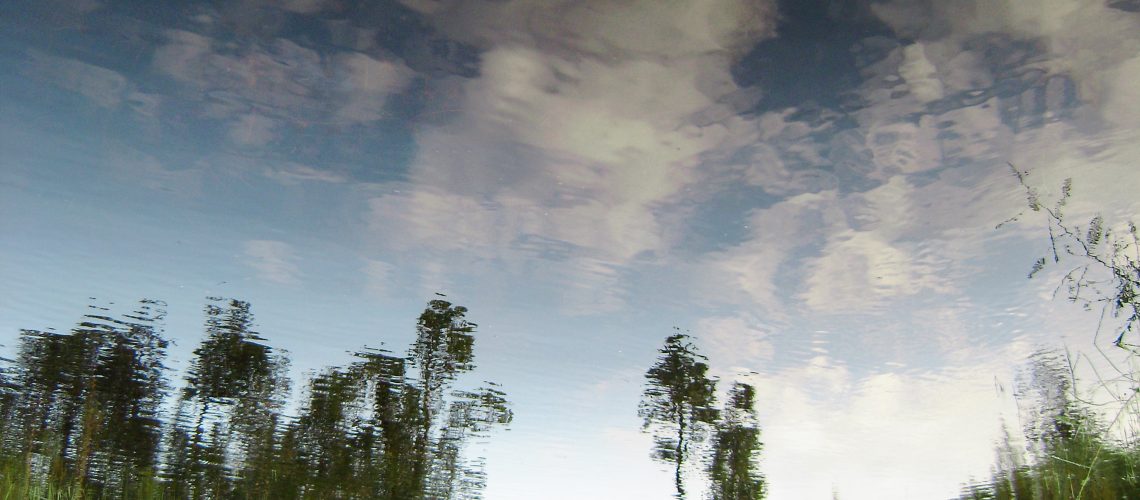

Blue Kaufman
- March 8, 2018
- 5:28 pm
Stormwater Ponds at UCF Combat Runoff
In undeveloped areas, rainwater is usually soaked up by grasses and plants. When sidewalks, buildings, and roads are added to the landscape, this water cycle changes. Instead of being absorbed into the soil, the water flows across streets and parking lots. Here it collects sediments, pollutants, fertilizers, and oils—a toxic blend known as stormwater runoff.
At the University of Central Florida, there are a variety of green infrastructure initiatives in place to combat the harmful effects of runoff. Of these, perhaps the most notable are stormwater ponds. According to Amanda Lindsay, a senior biologist for UCF Landscape and Natural Resources, the stormwater ponds at UCF are essential to help filter out water impurities in developing areas.
“Sediment filtration is one of the biggest issues,” Lindsey said. “Too much sediment can lead to cloudy water, which can cause harmful sunlight restriction for underwater plants.”
Lindsay also stresses the importance of understanding water as an integrated system, especially in urbanizing areas such as Central Florida.
“After the stormwater ponds, the water trickles into the Econolockhatchee River before being emptied into the St. Johns River,” Lindsey said. “Eventually it reaches the Atlantic.”
At UCF there are over 10 stormwater ponds, which ebb and flow according to rainfall patterns. The newest stormwater pond at UCF was built near the Libra water tower to help process excess runoff from the Libra community expansion. Using an equation that factors in water volume, UCF works with the Florida Department of Environmental Protection (FDEP) to strategically build these ponds as a necessary means of flood control. In other words, as paved surfaces rapidly replace natural ones, stormwater ponds will continue to develop alongside them.
Although the stormwater ponds are human-built and provide a variety of water quality services, they also enrich biodiversity on campus. According to Lindsay, a 2016 Urban Ecological Field Studies class at UCF surveyed the natural bodies of water and stormwater ponds on campus for ecological comparisons. Their research determined that both the stormwater ponds and natural ones provided the same ecological services to the alligators, fish, and birds that use them as habitats.
This year, The University of Central Florida will celebrate World Water Day on March 22, 2018, with the theme “the answer is in nature.” It’s a theme that asks us to view water as a resource shared by all inhabitants of the planet, rather than just a commodity to be harnessed and controlled. Looking to oceans, rivers, lakes, and even stormwater ponds, UCF hopes to find solutions to the water challenges of the 21st century.
If you or your organization is interested in getting involved with water initiatives on campus, consider adopting a pond or requesting a sustainability tour of UCF’s Chilled Water Plant.